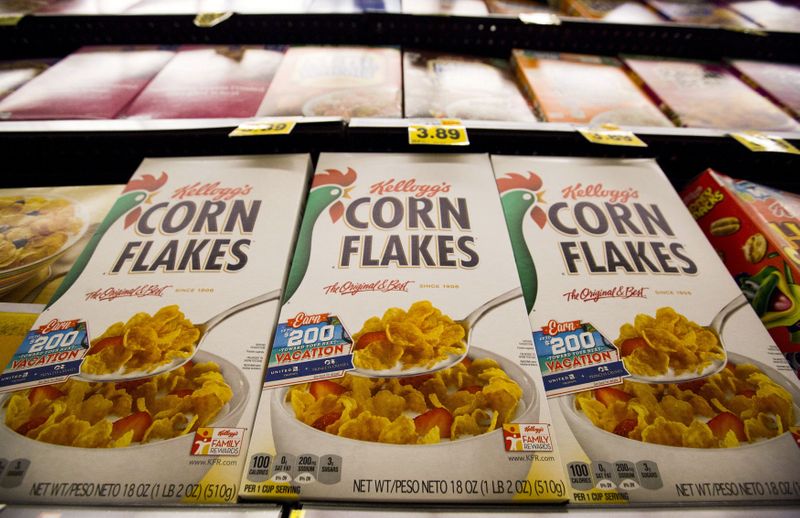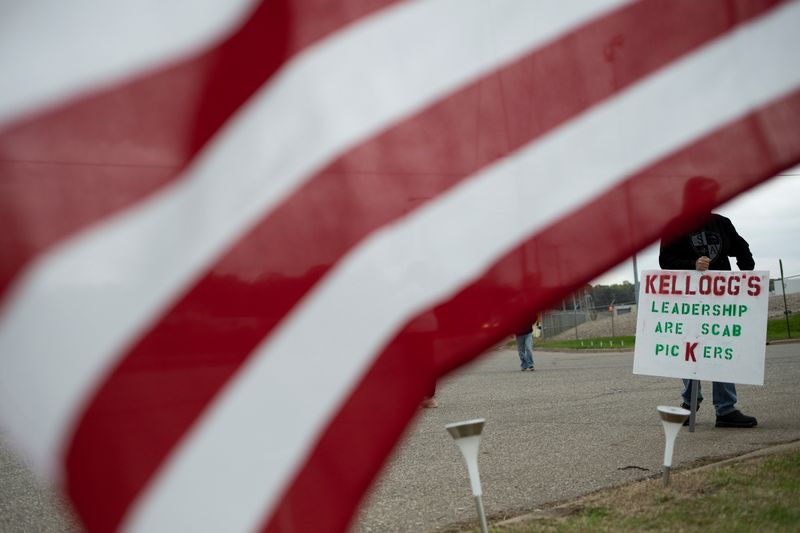(Reuters) -Kellogg Co said late Wednesday its cereal plant workers had rejected a revised offer by the U.S. packaged foods maker, prolonging the months-long negotiations over a new contract.
The workers went on a strike on Oct. 5 after their contracts expired, as negotiations over payment and benefits stalled due to differences between the company and around 1,400 union members at Kellogg’s cereal plants.
The Froot Loops cereal maker said in a statement its revised offer, which is set to expire on Nov. 11 midnight, was immediately rejected by the union who refused to place it before the employees for a vote.
“This is our “Last Best Final Offer” to the union.”
Kellogg has demanded that workers give up quality health care, retirement benefits, and holiday and vacation pay, Anthony Shelton, president of Bakery, Confectionery, Tobacco Workers and Grain Millers (BCTGM) International Union, had said last month.
The BCTGM union insists on proposals that are “unsustainable and unrealistic”, Kellogg said on Wednesday.
The union will continue with its strike, Bloomberg reported earlier in the day, citing a message from BCTGM.
The union did not immediately respond to Reuters request for a comment.
The revised offer specified that the company will continue with legacy wages and benefits with raised wages for current and future transitional employees, though it did not propose any changes to the current healthcare plans.
Kellogg proposed a two-tier employment system that would slowly take power away from union by removing the 30% cap on the number of transitional workers, BCTGM members said.
“We are no longer proposing a permanent two-tiered structure,” the company said.
The latest stall in negotiations means Kellogg facilities that make breakfast cereals in Battle Creek, Michigan, Omaha, Nebraska, Lancaster, Pennsylvania and Memphis, Tennessee would not be functioning at their full production capacity.
(Reporting by Aishwarya Nair in Bengaluru and additional reporting by Praveen Paramasivam; Editing by Sherry Jacob-Phillips)

























